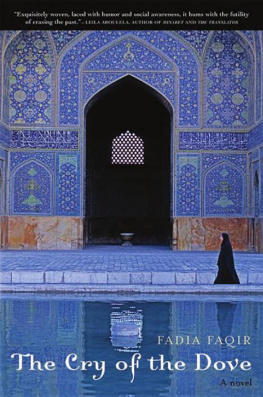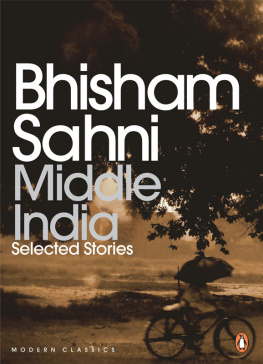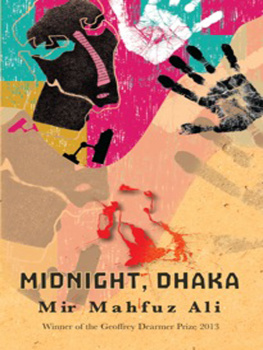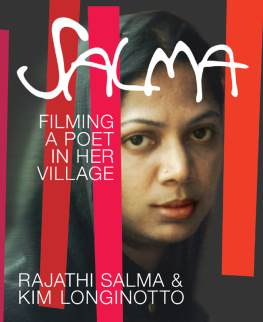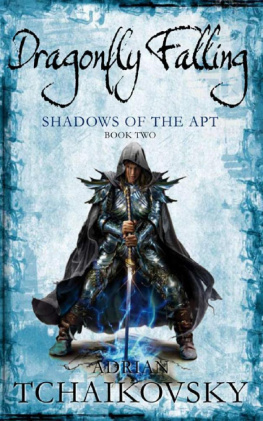





Where the River Meets the Sea
THE WHITE SHEEP DOTTED THE GREEN HILLS LIKE TEASED wool and the lights of the solitary mill floated on the calm surface of the river Exe. It was a new day, but the dewy greenness of the hills, the whiteness of the sheep, the greyness of the skies carried me to my distant past, to a small mud village tucked away between the deserted hills, to Hima, to silver-green olive groves gleaming in the morning light. I used to be a shepherdess, who under a barefaced sun guided her goats to the scarce green patches with her reed pipe. The village of Hima at this time of year would be teeming with camels, horses, cows, dogs, cats, butterflies and honeybees. Horses raced, their hoofs releasing clouds of dust on the plain. It was springtime, and the season of engagements had already begun. Wedding celebrations would be held just after the harvest. I was one of the girls of the village who were ripe and ready to be plucked. `Mother, I saw the moon at night,' I prayed for my black and brown goats, `up there in the sky. Forgive me, Allah, for I have sinned. The heat of passion had made me bend.'
I stuck a liner to my pants, pulled them up my shaved and oiled legs and realized that I was free at last. Gone were the days when I used to chase the hens around in wide pantaloons and loose flowery dresses in the bright colours of my village: red to be noticed, black for anger, green for spring and bright orange for the hot sun. If this small glass bottle were full of snake venom I would drink it in one go. I dabbed some perfume behind my ears and on my wrists, took a deep breath, tossed my no longer braided and veiled hair on my shoulders, pulled my tummy in, straightened my posture and walked out of Swan Cottage, which was the name Liz had chosen for her semi-detached house. I filled my chest with the clean morning air, inflating my ribs until my back muscles were taut and raw. I could see shreds of blue sky between the luminous white clouds that stretched out in different shapes: the mane of a horse, a small foot, a tiny, wrinkled hand like a tender vine leaf that has just burst open.
The cathedral in the distance looked dark and small. The feeble English sun was trying hard to melt away the clouds. I walked past the student residences, past the large white houses with neat gardens and barking dogs, past HM Prison. I looked at the high walls, the coiled barbed wire, the small barred windows, and realized that this time I was on the wrong side of the black iron gate despite my dark deeds and my shameful past. I was free, walking on the pavement like an innocent person. My face was black as if covered with soot, my hands were black and I had smeared the foreheads of my family with tar. A thick, dark, sticky liquid dripped from the iron railing I was holding all the way to the walkway. I shook my head trying to chase away the foul smell and looked towards the Exe. Some seagulls were flapping their wings, encircling their prey then diving into the water for the final kill. My number was up a long time ago, but for some reason I was living on borrowed time.
My nose followed the perfume of flowers in bloom, but the smell of the honeysuckle travelling down the hill was suddenly overpowered by the smell of grease, which was the first indication that Peter's Plaice, the fish-andchip shop on the corner of the Clock Tower, was not too far. I sniffed the air. A group of young students stood there shouting, `Time is running out for education.'
`Time is running out,' I repeated.
A few years ago, I had tasted my first fish and chips, but my mountainous Arab stomach could not digest the fat, which floated in my tummy for days. Salina resisted, but Sally must adapt. I kept looking up adapt in the Oxford English Dictionary: Adapt: fit, adjust, change. Apparently in England the police stop you in the street and check your papers and sense of belonging regularly. An immigration officer might decide to use my ability to digest fish as a test for my loyalty to the Queen. I chewed on the parts that were still frozen and said to the young man who bought them for me, with tears in my eyes, `Yumma! It delicious!' `Yummy!' he said rebuking me.
In Hima my mother used to rebuke me all the time. Salina, did you feed the cows? Did you clean the barn? Why didn't you milk the goats? Yumma, I did. Every Godgiven morning I stuck the end of my embroidered peasant dress in my wide orange pantaloons and ran to the fields. I held the golden stems of wheat in one hand and the sickle with the other and hit as hard as I could. All that holding of dry maize and wheat chipped my hands and grime lined my fingernails. Rough, dirty hands, I had. That was before I ran to freedom. Now I stood shaking my head and rubbing the big fake yellow stone on my ring with my smooth hands, which were always covered with cocoa butter, and sighed. Gone were the days when I was a farmer, a shepherdess, a peasant girl. I am now a seamstress, an assistant tailor in a shop in Exeter, which a few years ago was voted the most beautiful city in Britain. Now Salina the dark black iris of Hima must try to turn into a Sally, an English rose, white, confident, with an elegant English accent, and a pony.
Liz, Elizabeth, Queen Elizabeth I, Her Highness, my landlady was still asleep. The smell of cheap wine clung to everything: the sofa, the armchairs, the kitchen table and chairs, the curtains and the musty carpets.When I first met Liz she looked tall in her navy jumper, blue shirt, cream riding breeches and flat, black leather boots. Her long, straight grey hair was gathered neatly in a ponytail and the puffiness of her eyes was concealed with compact powder. She stood erect as if inspecting her guards. I was looking for a room to rent. After walking all the way to Cowley I was able to find King Edward Street. I knocked gently on the door of Swan Cottage.When she opened the door I was wet and trembling in my thin shirt and fleece. It was my first attempt to get out of the hostel into the outside world. I tried to say good morning, but I could not control my quivering chin. I stood there thin and dark, shifting my weight from one foot to another, gazing at the tip of my shoes until I was finally able to say, `The sun shining,' although it was pouring with rain. She asked me to come in.

When I got back Liz was snoring so I sneaked into the bathroom, shut and bolted the door. The sound of a gate being shut, footsteps, and walking on cold paving stones looking and looking for her. The tub was full so I added few drops of bath oil to the hot water. The smell of sage filled the small bathroom and reminded me of the long afternoons in Hima, when we used to drink sage tea and spin and weave. Instead of walking up the mountains looking for sage bushes, picking the soft green leaves, washing them then drying them, there they were: cut, squeezed and stored into little dark blue bottles for ma lady's convenience. With a lubricated razor, I shaved my legs and underarms carefully. Before your wedding night they spread a paste of boiled sugar and lemon between your legs and yank away the hair. My grandmother Shahla said, `When they finished with me I was covered with bruises, but as smooth and hairless as a nine-year-old girl. Your grandfather preferred it clean. I looked so pure and innocent, he said.' The painful and sticky sugaring belonged to the past, together with marriage, my black Bedouin madraqa robe, and silver money hats, all shelved there at the end of the horizon, overseas. Foam on the legs, then shave - puff- no hair. Nice and easy and washes away instantly like love in this new country, like love in the old country.

